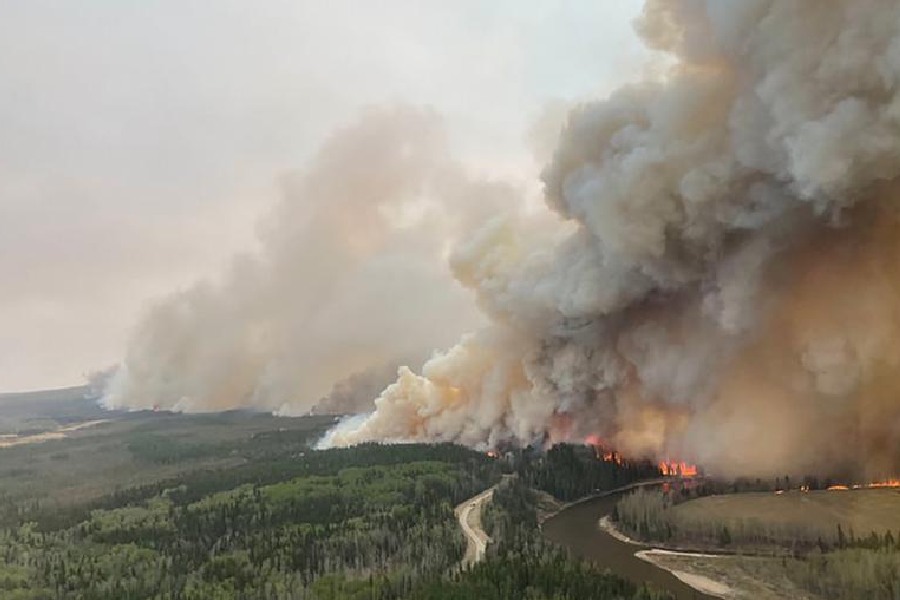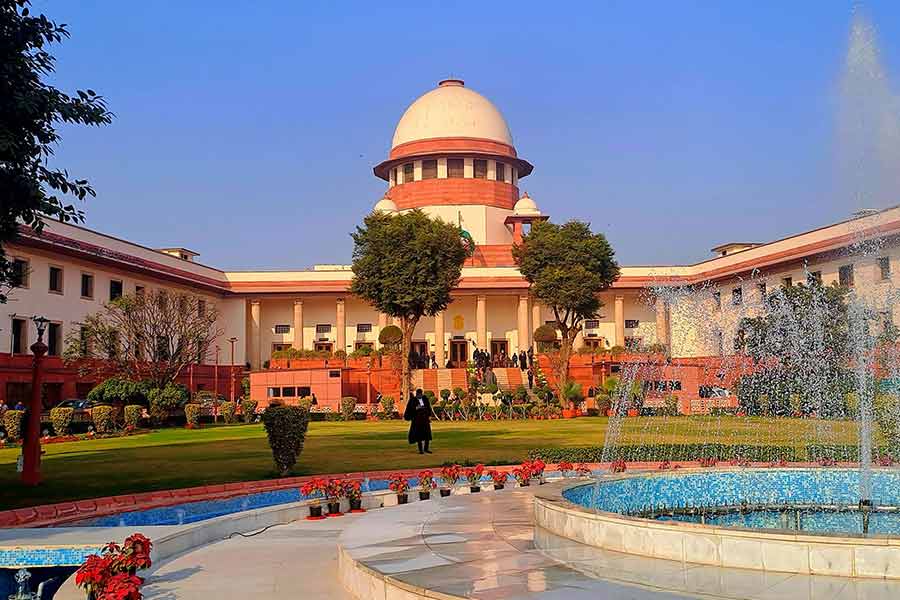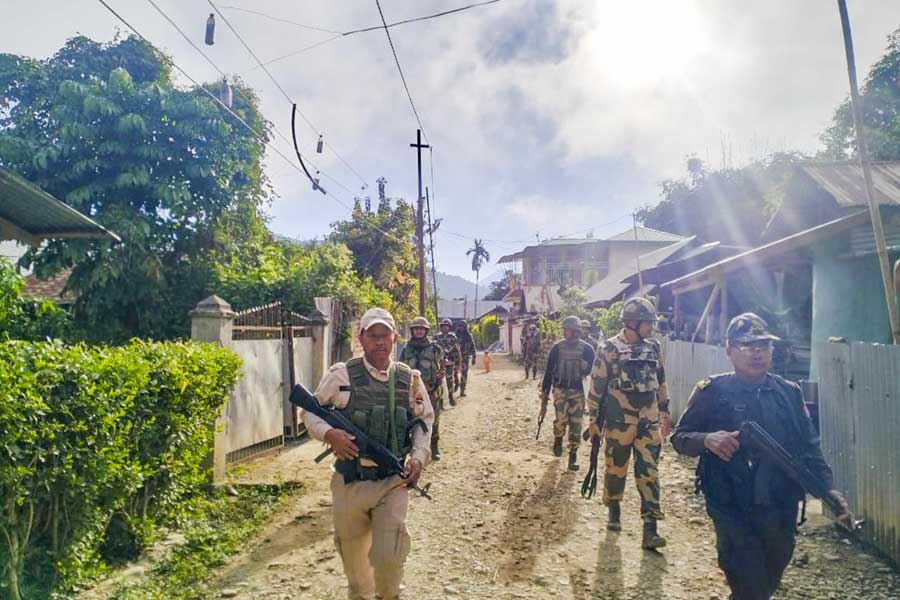The Canadian province of Alberta declared an emergency on Saturday as the hot, dry weather worsened raging wildfires, forcing some 25,000 people to abandon their homes.
"We've declared a provincial state of emergency to protect the safety, health and welfare of Albertans," Alberta Premier Danielle Smith said at a news conference after a meeting of her government's emergency management committee.
The state of emergency grants Alberta's government "greater powers to respond to extreme situations," Smith said. This includes mobilizing additional resources and unlocking emergency funds.
Smith also took to Twitter, saying, "The number of wildfires and evacuations has increased again and we must prioritize the safety of Albertans."
State of wildfires
The fire situation worsened on Saturday as firefighters dealt with at least 103 active wildfires — several of them listed as out of control. The province's wildfire unit had earlier warned that hotter and windier conditions would lead to extreme wildfire behavior over the weekend. Thousands more people have been told to be ready to leave their homes at a moment's notice.
Alberta is one of the world's largest oil-producing regions. Given the "hot, dry spring with so much kindling, all it takes is a few sparks to ignite some truly terrifying wildfires," Smith had said earlier.
"These conditions have resulted in the unprecedented situation our province is facing today," she had said.
More than 20 communities have been evacuated, and some 122,000 hectares have been ravaged by the fires so far. That's about 1.5 times the size of New York City. Christie Tucker, information unit manager with Alberta Wildfire, told Canada's CBC that 800 hectares on average burned this time of year.
Drayton Valley's 7,000 residents, 20 homes in Fox Lake and the 8,000 residents of the town of Edson are among those who have been asked to evacuate.
The hot and dry weather is forecasted to continue for the time being.
Meanwhile, oil sands facilities have been keeping an eye on the dangers but have not reported a disruption in production so far.
Canada's central and western provinces have been facing extreme weather-related crises in recent years fueled by global warming. Two years ago, a "historic" heat dome in British Columbia claimed hundreds of lives and was followed by major fires. Before that, in 2016, forest fires in the country's oil sands region disrupted production, forced out 100,000 residents of Fort McMurray and pummeled the nation's economy.










